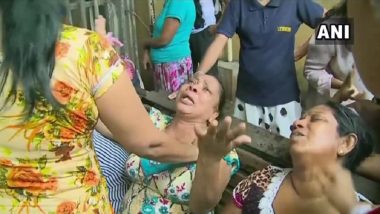Colombo, April 21: Suicide bombers were involved in at least two of the eight attacks that struck three churches and luxury hotels frequented by foreigners in Sri Lanka on Easter Sunday, killing 188 people and injuring around 500 others, shattering a decade of peace in the island nation after the end of the brutal civil war with the LTTE.
The blasts - one of the deadliest in the island nation's history - targeted St Anthony's Church in Colombo, St Sebastian's Church in the western coastal town of Negombo and a church in the eastern town of Batticaloa around 8.45 a.m. (local time) as the Easter Sunday mass were in progress, police spokesman Ruwan Gunasekera said. Sri Lanka Blasts: Nationwide Curfew in SL Till April 22 Morning, Schools Shut; Facebook, WhatsApp, Viber Blocked Temporarily.
Minister of External Affairs, Sushma Swaraj: Indians in distress may please contact Indian High Commission in Colombo. We will provide you all assistance. @IndiainSL Our helpline numbers are: +94777903082,+94112422788,+94112422789, +94112422789. https://t.co/yS7RF2IIPC
— ANI (@ANI) April 21, 2019
Explosions were reported from three five-star hotels - the Shangri-La, the Cinnamon Grand and the Kingsbury in Colombo Sunday morning. According to officials, a suicide bomber blew himself up at the restaurant of the Cinnamon Grand hotel. Harsha de Silva, Sri Lanka's Minister of Economic Reforms and Public Distribution, said that there have been "many casualties including foreigners." Sri Lanka Terror Attacks: Police Chief Pujuth Jayasundara Warned Top Officials 10 Days Before Serial Blasts, Says Report.
The death toll following eight blasts has risen to 188, hospital sources said, adding that more than 450 people have been injured in these attacks. At least 11 foreigners, including two Chinese, were reported killed in the attacks, they said. Americans and British citizens were also among the dead. The Colombo National Hospital spokesperson, Dr Samindi Samarakoon, said more than 300 people have been admitted with injuries.
Dr Kalanidhi Ganeshalingam, the spokesperson for the Batticaloa hospital, said over 100 have been admitted with injuries from St Michael's Church explosion. Local media reported that tourists from India, Pakistan, US, Morocco and Bangladesh are also reported to have been injured in the explosions.
Later in the day, a powerful blast in the capital's southern suburb near the Colombo Zoo killed two persons, police spokesman Ruwan Gunasekera said. When a police team entered a house in the Colombo north suburb of Orugodawatta to conduct a search, a suicide bomber blew himself up causing a concrete floor of a two-storey building to crash on them, killing three policemen in the eighth blast, police said.
One suspect has been arrested in connection with the blast near the Zoo. The suspect is being questioned by police, local TV reported. Soon after the eighth blast, the government imposed curfew with immediate effect. The curfew will be in force indefinitely until further notice. No group has claimed responsibility for Sunday's attacks.
However, most of the deadly attacks in the past in Sri Lanka were carried out by the Liberation Tigers of Tamil Eelam (LTTE) which ran a military campaign for a separate Tamil homeland in the northern and eastern provinces of the island nation for nearly 30 years before its collapse in 2009 after the Sri Lankan Army killed its supreme leader Velupillai Prabhakaran.
President Maithripala Sirisena has appealed for calm. "I have been shocked by this totally unexpected incidents. The security forces haven been asked to take all action necessary," Sirisena said. Prime Minister Ranil Wickremesinghe termed the blasts as "cowardly attacks" and said his government was working to "contain the situation."
"I call upon all Sri Lankans during this tragic time to remain united and strong... The government is taking immediate steps to contain this situation," he tweeted. Security has been intensified around the religious places across the capital. The government has temporarily blocked all social media platforms.
All necessary emergency steps have been taken by the government, Harsha de Silva said.
"Horrible scenes. I saw many body parts strewn all over," he said. The Indian High Commission in Colombo said that it was closely monitoring the situation in Sri Lanka. "We are closely monitoring the situation. Indian citizens in need of assistance or help and for seeking clarification may call the following numbers : +94777903082 +94112422788 +94112422789," the High Commission tweeted.
"In addition to the numbers given, Indian citizens in need of assistance or help and for seeking clarification may also call the following numbers +94777902082 +94772234176," it said. The first blasts were reported at St Anthony's church in Colombo and St Sebastian's Church in Negombo just outside the capital. "A bomb attack to our church, please come and help if your family members are there," read a post in English on the Facebook page of the St Sebastian's Church.
Images circulated on social media showed severely damaged St Sebastian's church, with a shattered ceiling and blood on the pews. Heavy security has been deployed at the Bandaranaike International Airport. The riot police and the Special Task Force, extra police security has been deployed around the airport, state-run Daily News reported.
Leave of all police personnel has been cancelled in the wake of blasts.
Doctors, nurses and health officials who were on leave have been asked to report to work, Health Ministry sources said. The government schools have been closed for Monday and Tuesday.
Cardinal Malcolm Ranjith said all Easter masses in the Colombo District have been cancelled. Former president Mahinda Rajapaksa, under whose leadership the Lankan Army crushed the LTTE, termed the attack as "absolutely barbaric". "We will not tolerate such violence, such acts of terrorism, of cowardice within our borders once again. We will stand together and rise up against it as one voice. We will stand united as a nation," he said.




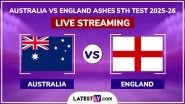
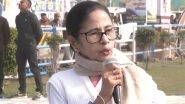

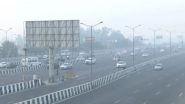
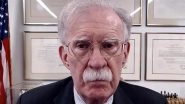
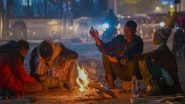

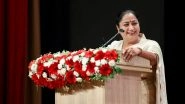

 Quickly
Quickly